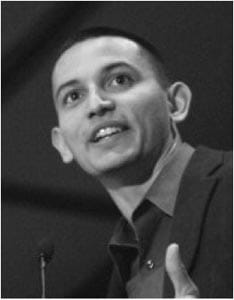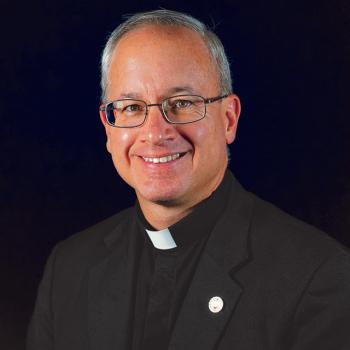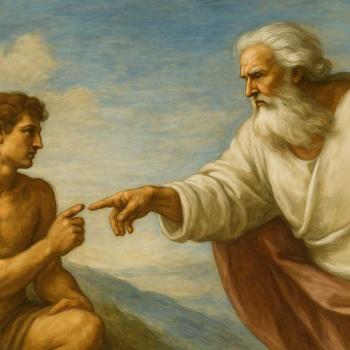 Adam Taylor is the author of Mobilizing Hope, a book that draws upon the heritage of faith-based activism to ground and reimagine political engagement and the fight for biblical justice for a new generation. After earning degrees at Emory and Harvard University's Kennedy School of Government, Taylor founded and served as executive director for Global Justice, an organization that mobilizes students around issues of global human rights and economic justice. He went on to serve as Senior Political Director at Sojourners, as a White House Fellow and now as the Vice President of Advocacy for World Vision, USA. He is also an ordained minister at First Baptist Church in Washington, D.C.
Adam Taylor is the author of Mobilizing Hope, a book that draws upon the heritage of faith-based activism to ground and reimagine political engagement and the fight for biblical justice for a new generation. After earning degrees at Emory and Harvard University's Kennedy School of Government, Taylor founded and served as executive director for Global Justice, an organization that mobilizes students around issues of global human rights and economic justice. He went on to serve as Senior Political Director at Sojourners, as a White House Fellow and now as the Vice President of Advocacy for World Vision, USA. He is also an ordained minister at First Baptist Church in Washington, D.C.
As Mobilizing Hopeis the subject of Patheos' Book Club, Taylor spoke with Timothy Dalrymple by phone.
Why did you feel called to write Mobilizing Hope?
The heart behind the book was twofold. One, I have always been a fan and to some extent a scholar of social movements, particularly the civil rights and anti-apartheid movements. The civil rights movement was such a powerful force in shaping my identity. My parents got married in 1968, the same year Dr King was assassinated. I come from a biracial background. They instilled in me a commitment to diversity and to racial and social justice. And the anti-apartheid movement was coming to a head just as I was growing up. Apartheid mirrored so much of what our country had faced in Jim Crow segregation.
In high school and then college, I felt as though my generation had begun to substitute community service for civic engagement. I've always been a strong believer in community service, and have been involved in many ongoing projects. But young people historically have been on the vanguard of social and political change, and I wanted to find a way to revitalize that commitment to activism.
The other main reason stems from my faith. Faith had a massive impact in driving both of those movements. I started to work more and more within the church. I accepted a call into the ministry and had been working at Sojourners, trying to revitalize our commitment within the church to social justice and what I call prophetic advocacy. A lot of the churches and Christians I was spoke with, young or old, were often conflating social justice with compassion, mercy and charity. Mercy and compassion are critical signs of discipleship, but they're very different from biblical justice. I found myself trying to clarify what biblical justice looks like, and what it calls us to do. So I had to make the case that it's not an add-on to our faith. The fight for biblical justice is not an extra-curricular activity. It's at the very heart of our faith.
So I wanted the book to make a case for why social justice is critical to discipleship, and really offer some tools and "new wineskins" on how we do that in our current political and economic context. There's much we can learn from previous social movements, and I try to draw some of those lessons, but we can't be captive to that history. We need to be active and innovative. I offer concrete examples of how many young people are applying their faith in transformative ways and making a difference at an international or local level, and I try to offer some practical tips and tools for what activism could look like today.
If readers take away one thing from Mobilizing Hope, what should it be?
I think the one thing is expressed in the quote from Dr. King that forms the very foundation of the book: his call to "be a transformed nonconformist." King was preaching from a text in Romans in which Paul calls the followers of Christ to "be not conformed to the patterns of this world, but be transformed by the renewing of your minds." He called for Christians to serve as maladjusted non-conformists.
So the one thing I hope people take away is this: our faith really is a radical faith. We follow a radical savior. In the context of following Christ, we are automatically drawn into the struggles for greater justice and dignity and righteousness in the world. That requires us to strive to transform many of the broken patterns and broken relationships we see around us. It only takes a small committed minority of people who are courageous dedicated to a cause in order to overcome and transform some of the most intractable issues and crises that we face. I hope that people are inspired by examples of many who come before us, but also feel empowered to be maladjusted, creative nonconformists in confronting today's injustices.





